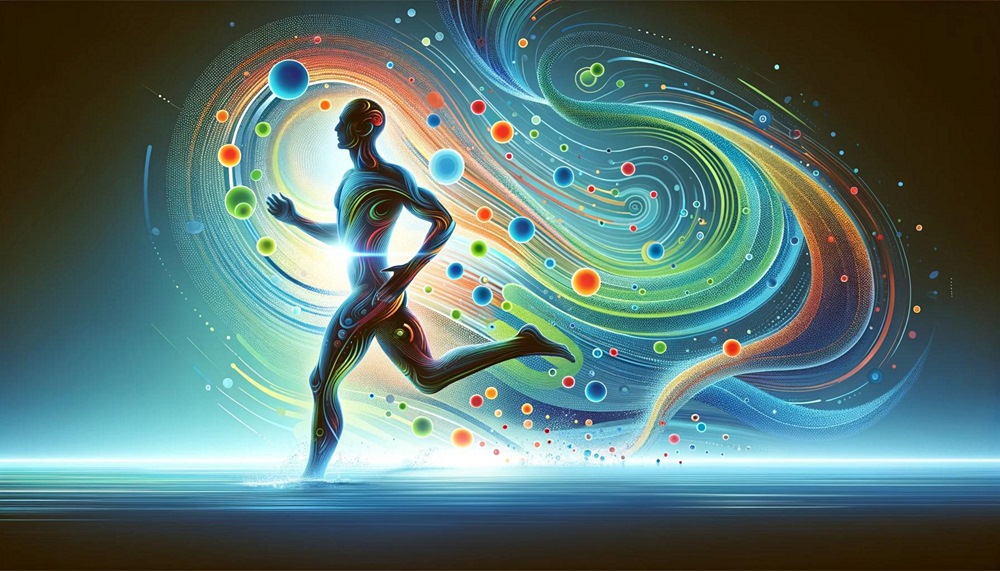Last Updated on: 18th December 2024, 12:30 pm
Electrolytes are essential minerals that play critical roles in the body’s function, especially during physical activity. Here are some key electrolytes and their importance.
Sodium: The Fluid Regulator
Sodium regulates fluid balance in the body, maintaining blood pressure and supporting nerve function. During intense workouts, maintaining sodium levels is key to preventing dehydration.
Potassium: The Heart and Muscle Guardian
Potassium is vital for muscle contractions and cardiovascular health. It works with sodium to maintain electrical gradients in cells, crucial for heart function and muscle contractions. A dip in potassium can lead to muscle weakness and heart irregularities.
Magnesium: The Energy Conductor
Magnesium is involved in over 300 enzymatic reactions, including energy production and muscle relaxation. It helps turn food into energy and allows muscles to relax after contraction, reducing the risk of cramps and spasms.
Calcium: The Bone and Muscle Architect
Calcium is essential for muscle function and bone health. It facilitates muscle contraction and is involved in nerve impulse generation. Adequate calcium intake is crucial for muscle performance and recovery.
Each of these electrolytes plays a unique role in the body’s function during physical exertion. Their balanced levels are crucial for optimal performance and recovery.
Electrolyte Imbalance: Causes, Symptoms, and Consequences
How Physical Activity Can Lead to Electrolyte Imbalance
Intense or prolonged physical activity causes the loss of essential minerals through sweat. This can disrupt the balance of electrolytes in the body. Sodium and potassium are often the first to be affected, leading to an imbalance.
Recognizing the Signs of Electrolyte Imbalance
Symptoms of electrolyte imbalance include muscle cramps, fatigue, dizziness, and irregular heartbeat. These signs should not be ignored, especially by athletes, as they can impact performance and health.
The Potential Impact on Athletic Performance and Overall Health
An electrolyte imbalance can hinder athletic performance, causing muscle weakness or cramps. Long-term imbalances can lead to serious health issues, including kidney problems and cardiovascular diseases. Maintaining electrolyte balance is essential for performance and health.
Understanding the causes and symptoms of imbalance, and taking steps to prevent it, can enhance athletic performance and protect overall health.
The Science Behind Electrolyte Replacement

During vigorous physical activity, the body loses water and essential electrolytes through sweat. Electrolytes like sodium, potassium, magnesium, and calcium are crucial for muscle contractions, fluid balance, and nerve function. Their depletion increases the risk of dehydration and imbalance, leading to muscle cramps and fatigue.
Proper hydration and electrolyte replenishment are crucial for athletes. It’s about restoring the body’s balance of these vital minerals to support performance and recovery.
Scientific studies highlight the importance of electrolyte replacement for athletic performance. Research shows that maintaining electrolyte levels can sustain endurance, prevent muscle cramps, and reduce recovery time. Athletes who replenish electrolytes during events experience less cramping and improved performance.
Understanding the science behind electrolyte replacement emphasizes its critical role in physical activity. Replenishing electrolytes is essential for maintaining balance and ensuring readiness for future challenges.
Practical Tips for Maintaining Electrolyte Balance
Hydration involves more than just water; it’s about balance. Before exercise, drink fluids with a pinch of salt or an electrolyte mix. During activity, sip on electrolyte-infused beverages. Afterward, continue with electrolyte-rich drinks or water and a balanced meal.
Incorporate electrolyte-rich foods like bananas, dairy products, leafy greens, and nuts into your diet. These foods provide potassium, calcium, and magnesium. Beverages like coconut water and sports drinks offer a quick source of essential minerals.
When using supplements, choose reputable brands and follow recommended dosages. Supplements can be valuable for prolonged or intense activity but should complement a balanced diet and proper hydration.
Maintaining electrolyte balance is crucial for performance and recovery. Hydrate strategically, choose electrolyte-rich foods and beverages, and use supplements wisely to support your body’s needs.
Special Considerations for Athletes and High-Intensity Activities

Endurance sports and high-intensity training increase the risk of electrolyte imbalance. Vigorous exercise escalates the loss of key minerals, leading to symptoms like muscle cramps and fatigue.
Individual electrolyte needs vary based on activity duration, intensity, environmental conditions, and personal sweat rates. Tailoring intake to these factors is crucial for performance and preventing health risks.
- Understanding Personal Sweat Rates: Monitor personal sweat rates and the specific demands of the sport or activity.
- Adjusting Intake: Use this information to adjust fluid and electrolyte supplement intake.
- Regular Blood Tests: Regular blood tests can provide insights into electrolyte levels, helping to fine-tune intake strategies.
Strategies for optimal electrolyte management include pre-loading before intense activities, consuming electrolytes during exercise, and replenishing after the activity.
Hydration is critical, but the balance of water and electrolytes fuels high performance. By staying vigilant and responsive to the body’s signals, athletes can maintain the electrolyte balance necessary for health and success.
Final Thoughts
Electrolytes are crucial for peak performance, endurance, and recovery. By balancing hydration and mineral intake, athletes can enhance their physical activity. This article provides strategies and insights for achieving optimal electrolyte balance. Embrace these guidelines to harness your full potential and elevate your physical activity.

